‘We’ll return’: Defiant Lebanese head home in south as Israeli forces refuse to withdraw
By Hiba Morad
As the 60-day deadline for the Israeli military withdrawal from southern Lebanon expired on Sunday, thousands of people flocked to their villages—some in vehicles, others on foot, defying Israeli threats.
The Israeli regime refused to adhere to the terms of the ceasefire agreement and the deadline for its withdrawal from the Lebanese territory, which ended on Sunday at 4 am local time (GMT 02:00).
Israeli military spokesperson warned people against returning to their homes in the southern part of the country even though the regime forces were required to pull out and allow people to return.
Defying the warnings and threats, people of Kfar Kila, Khiam and adjoining areas demonstrated bravery and resilience and headed to what remains of their homes in southern Lebanon on Sunday.
In response, the occupation forces opened indiscriminate fire at them, killing at least 15 and injuring more than 80 others, according to the latest report. The casualty toll is expected to mount though.
Speaking to the Press TV website, Lebanese Member of Parliament (MP) Sayyed Ibrahim al-Moussawi said the return of people to their villages and towns on Sunday despite enemy threats is clear evidence that they are firmly rooted in their homeland and have no intention of leaving.
“Lebanese people have made an unwavering choice not to abandon their land, despite Israeli troops ignoring the withdrawal deadline stipulated in the 60-day ceasefire agreement,” he stated.
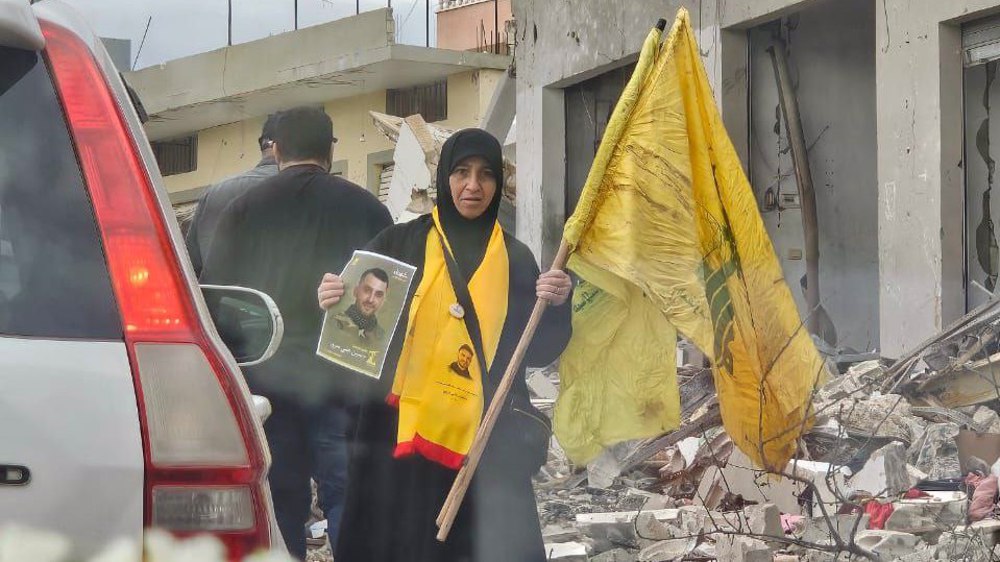
This enduring spirit, as highlighted by al-Moussawi, was on full display in the wee hours of Sunday morning as thousands of people, men and women, defied threats to head home.
Many boarded their cars and made their way back to southern villages. Despite continued Israeli military presence on the Lebanese territory, many tried to walk the final miles to their homes by foot.
Footage and images obtained by the Press TV website captured these moments of defiance.
In one video, young men stood no more than two meters from an Israeli tank in Maroun al-Ras, vigorously chanting resistance songs and holding pictures of martyred Hezbollah leader Sayyed Hassan Nasrallah while shouting, Labayka Nasrallah—"We are at thy service, O Nasrallah!"
One photo showed Israeli regime soldiers abducting two Lebanese men from Houla in brazen violation of the ceasefire. Eyewitnesses speaking to the Press TV website reported Israeli forces firing at civilians in Kafar Kila and Odeissi, wounding several of them.
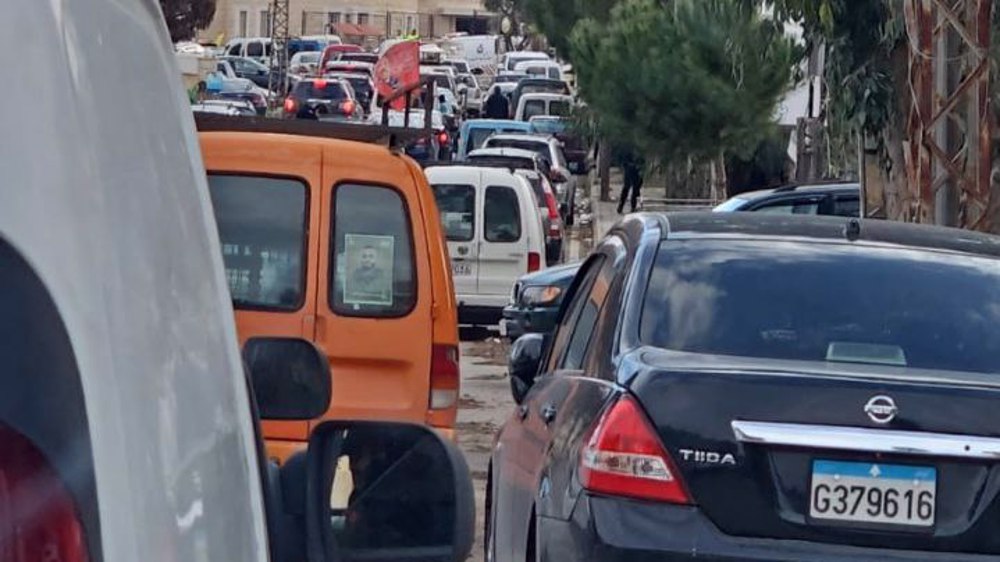
"Kill all you want, we will remain."
At Aitaroun's gate, Israeli Merkava tanks blocked roads and fired upon unarmed Lebanese civilians while they attempted to return home, resulting in fatalities and injuries.
“We are unable to enter the village; the Israelis just killed my cousin Abed, who was born and lived all his life in Aitaroun,” Hassan told the Press TV website.
Despite these brutal actions, people remained undeterred and vowed to return to their villages.
"We will return; there is no other option," Hassan stated. "The Israelis are foolish enough not to understand that we are not going anywhere. We support the resistance and our land until our last breath. We will remain in our land, even on piles of rubble."
As vehicle access became impossible, hundreds of people continued their journey on foot.
"We are walking on foot now, on the roads destroyed by Israeli troops. We do not care if they are still there; they have to leave soon. This land is our land," a woman told the Press TV website.
Ahmad, walking to Mais al-Jabal on crutches with his sister, said he chose to come despite his health complications to demonstrate his support for the resistance.
“I am here today with a broken leg from a previous Israeli attack on Beirut during the war. I underwent surgery twice, but I still chose to come today, even though it is not easy to walk using my crutches on destroyed roads,” he told the Press TV website.
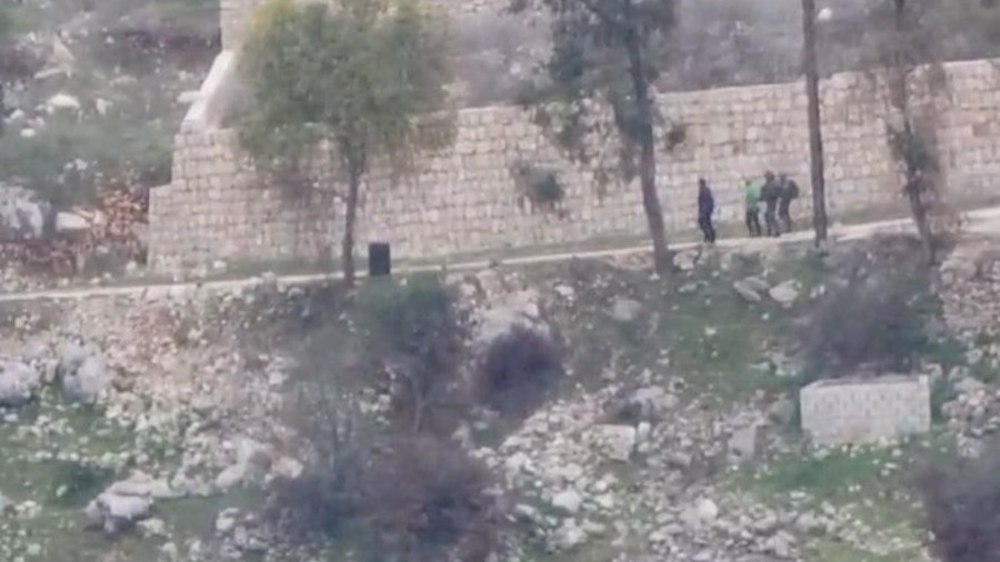
Resistance: People's choice no matter what
MP al-Moussawi asserted that despite threats and dangers due to Israeli military occupation, the Lebanese people remain committed to resistance and the cause.
“We have already seen a dozen Lebanese citizens abducted or wounded, with a few martyred. But the Lebanese people choose resistance no matter what,” he told the Press TV website.
“The Israeli enemy seeks to empty these towns. They have burned vast areas, destroyed homes and institutions, and sowed despair and hopelessness, forcing people to leave.”
The Lebanese parliamentarian hastened to add that when people of the south return to their homes and orchards, it is a sign of their unbreakable bond with the land and its resistance.
“This is the right of the people, the right of all who believe in the independence and liberty of this land and value the sacrifices of the martyrs,” he remarked.
“It is a national duty to support this cause.”
Al-Moussawi further called out the international community, the ceasefire monitoring committee, the UN Security Council, and the UN Interim Force in Lebanon (UNIFIL) for their inaction.
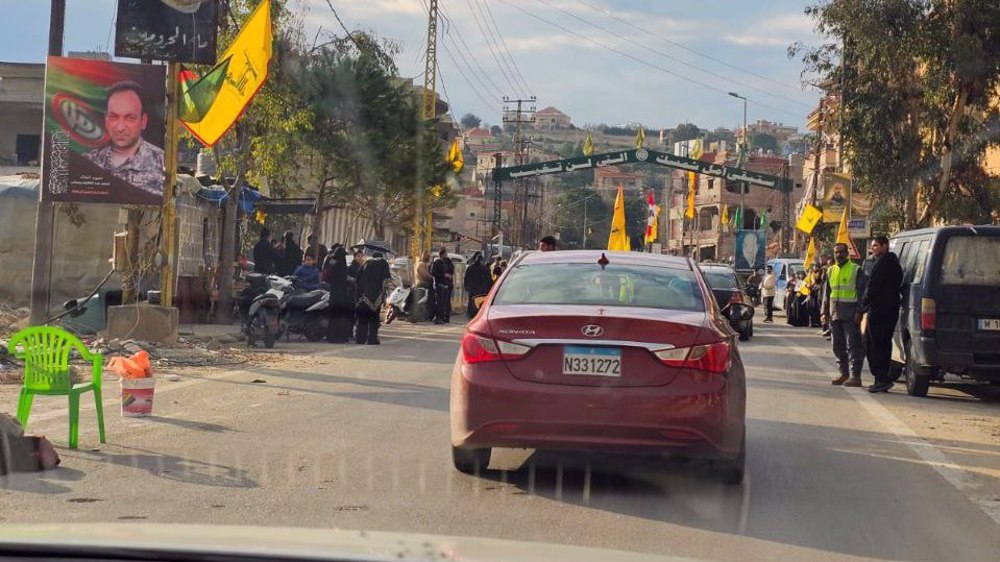
“The ongoing Israeli violations and events are very dangerous. They imply that the Israeli enemy is not willing to abide by any obligations and is belittling international laws and resolutions, convinced that no action will be taken against it on the international level,” he noted.
He condemned Israeli pretexts and alibis, stating, "The 60-day ceasefire period was more than enough for scrutinizing the area and ensuring it was weapon-free, as they claimed."
Resistance Justified
Layla, standing at Aitaroun’s entrance, expressed both frustration and determination.
“When Hezbollah defended Lebanon, the Israelis did not dare to commit such violations. We are here today to kick them out again,” she told the Press TV website.
“Where are all the promises of the world to us that Israel will withdraw? Why is everyone silent today? Where is the Lebanese state.”
Early in the morning, Layla and her family returned, despite knowing their house was destroyed during the recent war that created a large-scale humanitarian crisis in the Arab country.
Layla, like many others in the south today, echoed the Lebanese MP who pointed out that the Lebanese presidency, government, and army must defend civilians and reclaim the land.
“The status quo is very dangerous. Hezbollah is still giving a real chance to those who offered commitments and guarantees to end Israeli aggression and withdrawal. Current events underscore Lebanon's need for resistance,” al-Moussawi said.
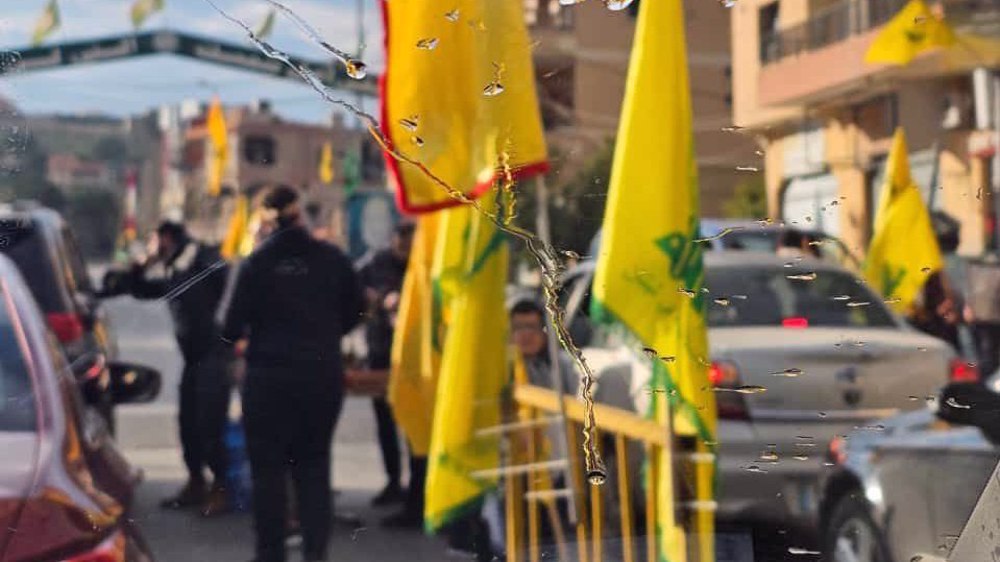
“The resistance proved that when it was on the ground, ready to confront aggression, the Israeli enemy would think a thousand times before acting. Today, no international agreements or obligations can stop the Israeli occupation from committing more violations.”
Lebanese people have the right to take steps to liberate and defend their land in line with international laws, human rights conventions, international humanitarian laws, and the Taef Accord, the lawmaker told the Press TV website.
“What happened today proves that the Lebanese must always take the initiative to defend themselves because the state is, unfortunately, incapable of fulfilling its tasks, leaving a void that forces the people to establish their resistance movement and confront the Israeli enemy.”
Pertinently, earlier this month, US special envoy Amos Hochstein told Lebanese officials that Israeli troops will withdraw from southern Lebanon before the 60-day ceasefire comes to an end.
As per the agreement reached in November, Israeli forces had to leave Lebanon within 60 days, by January 26, in return for Hezbollah’s evacuation of the Litani River – about 30 kilometers (18 miles) from the border – and dismantling any remaining military infrastructure in the south.
During this period, the occupation forces have been conducting near-daily attacks on Lebanon in violation of the ceasefire, including air strikes across the Arab country.
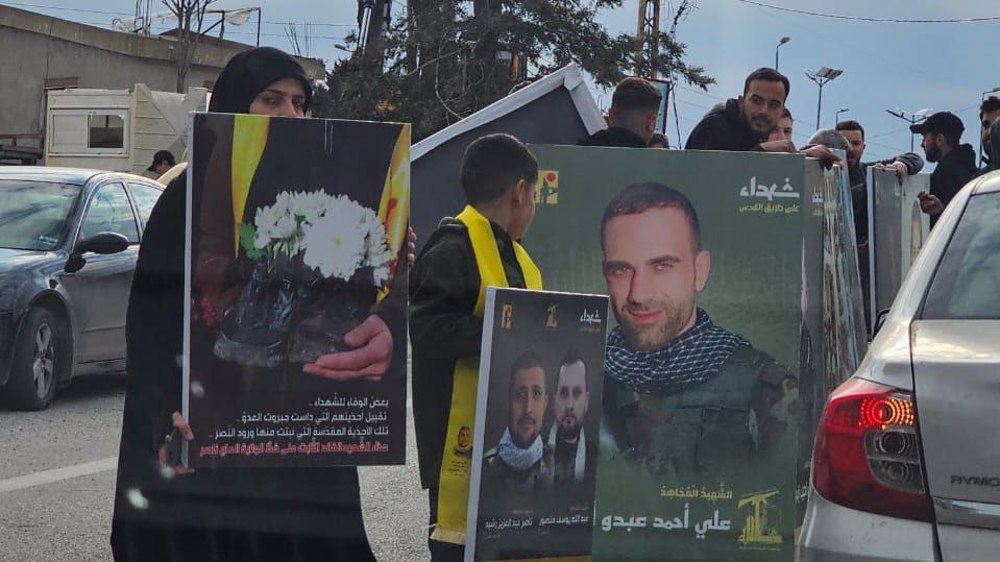
Former Lebanese Prime Minister Najib Mikati earlier this month said Beirut has sent a “clear message” to the international observers of the truce deal with Israel that the regime has to completely withdraw its forces from southern Lebanon before the end of January.
“We warned against continuing to violate the ceasefire understanding because it threatens the entire understanding, which is something I do not believe anyone wants to happen," he said in a meeting with Hochstein in Beirut on January 6.
On January 10, Lebanon complained to the UN Security Council over Israeli acts of aggression on agricultural lands and livestock in the southern part of the country in violation of the truce agreement.
It was followed by the election of International Court of Justice (ICJ) judge Nawaf Salam as the country's new prime minister after he received a sufficient number of votes from Lebanese legislators.
In his first speech as PM, Salam said he would work to “impose the complete withdrawal of the (Israeli) enemy from the last occupied inch of our land”.
Joseph Aoun, who was elected as the country's president, in a meeting with UN Secretary-General Antonio Guterres on Saturday, said the Israeli regime continues to violate the ceasefire agreement.
In a statement on Sunday, after fresh attacks against Lebanese people returning to their homes in the south, Aoun said Lebanon’s sovereignty and territorial integrity are "non-negotiable."
The people in Lebanon, however, believe that the new government in Beirut has so far failed to force the Israeli regime to adhere to the terms of the ceasefire agreement.
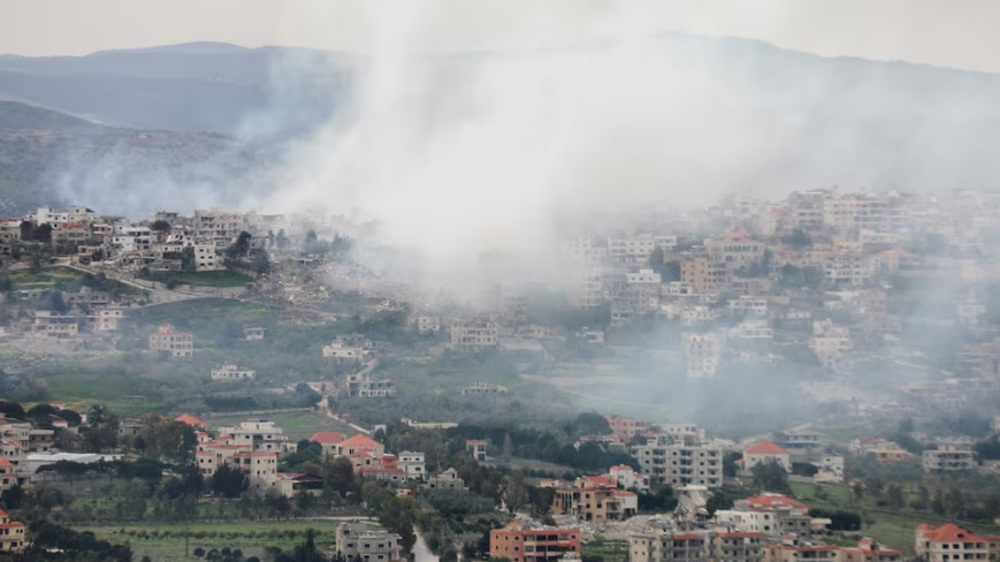
Israeli military targets two buildings in southern Lebanon in violation of ceasefire
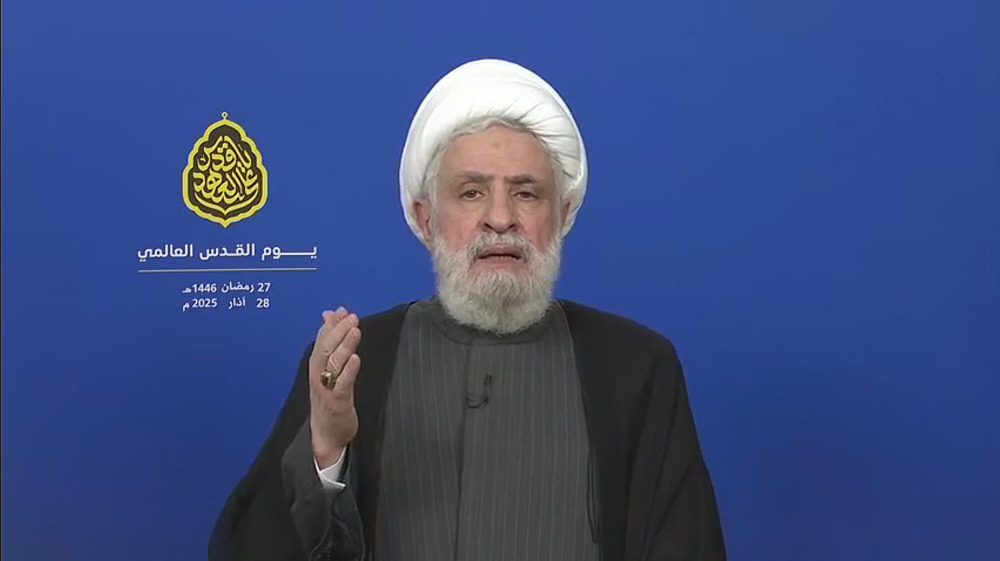
Iran a central supporter of Palestinian cause; Israel a demonic entity feeding off US: Hezbollah
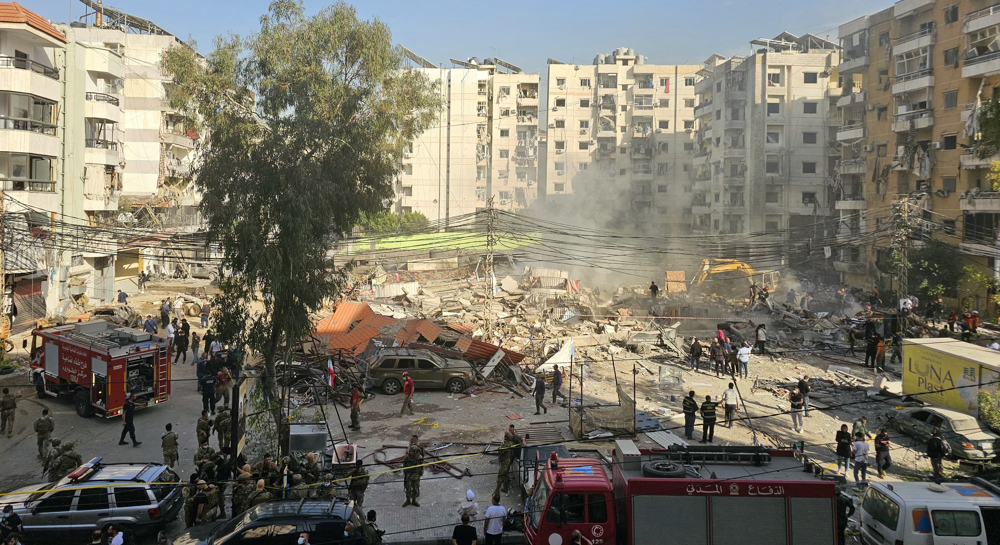
Iran censures Israel’s airstrike on Beirut
Eid al-Fitr celebrated in Iran, other countries as holy month of Ramadan comes to a close
VIDEO | Land Day protest in New York for Palestine
VIDEO | Press TV's news headlines
VIDEO | Austrian petition demands expulsion of Israeli envoy
American warplanes bomb Yemeni capital 13 times
VIDEO | Palestinians mourn loved ones on day of Eid
Defying ICC arrest warrant, Hungary scheduled to host Netanyahu
VIDEO | 'Israeli regime deliberately targets health workers'


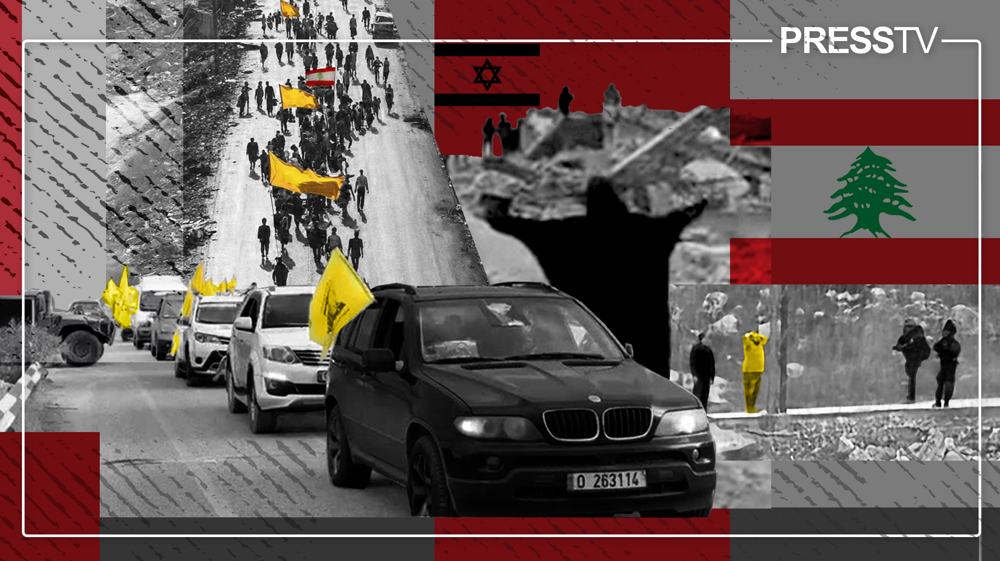



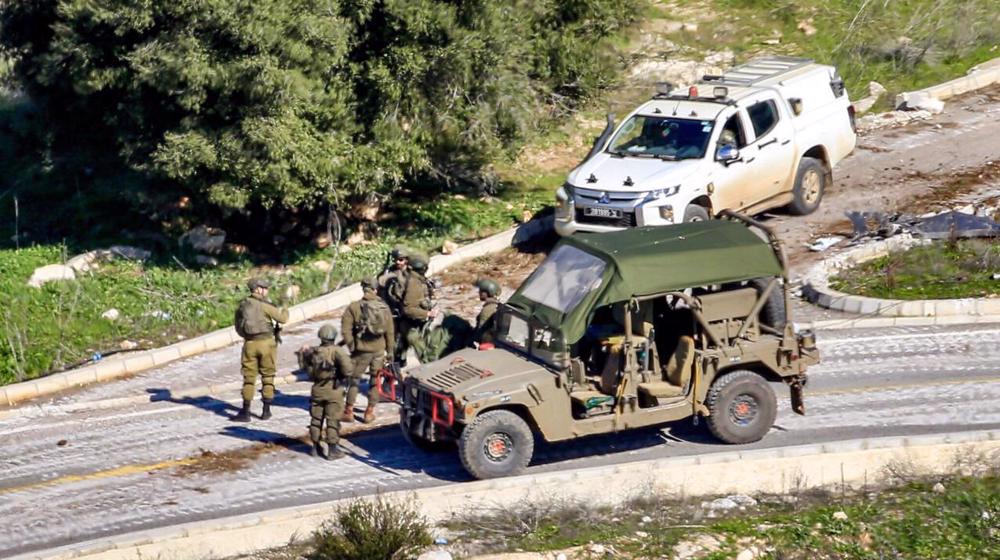
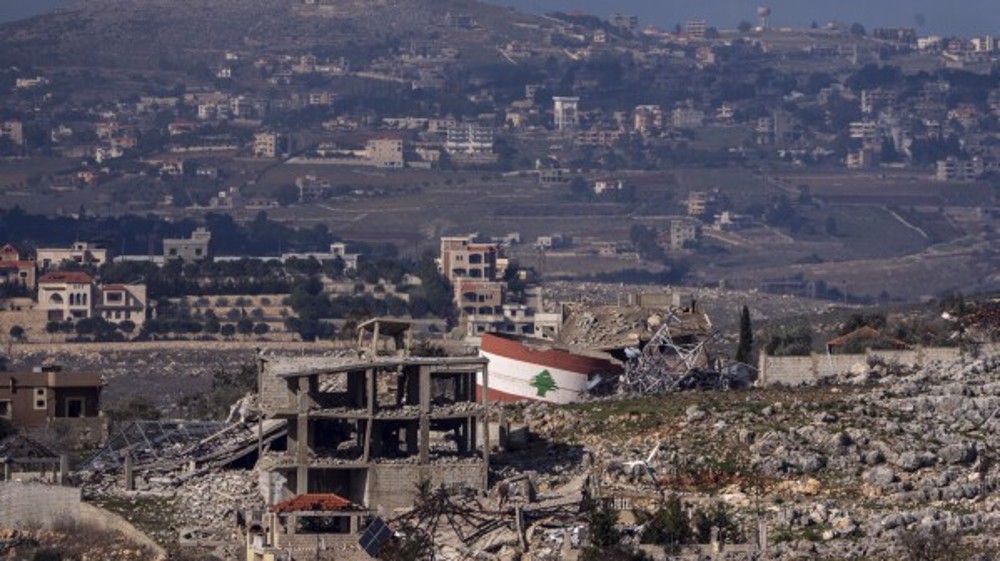
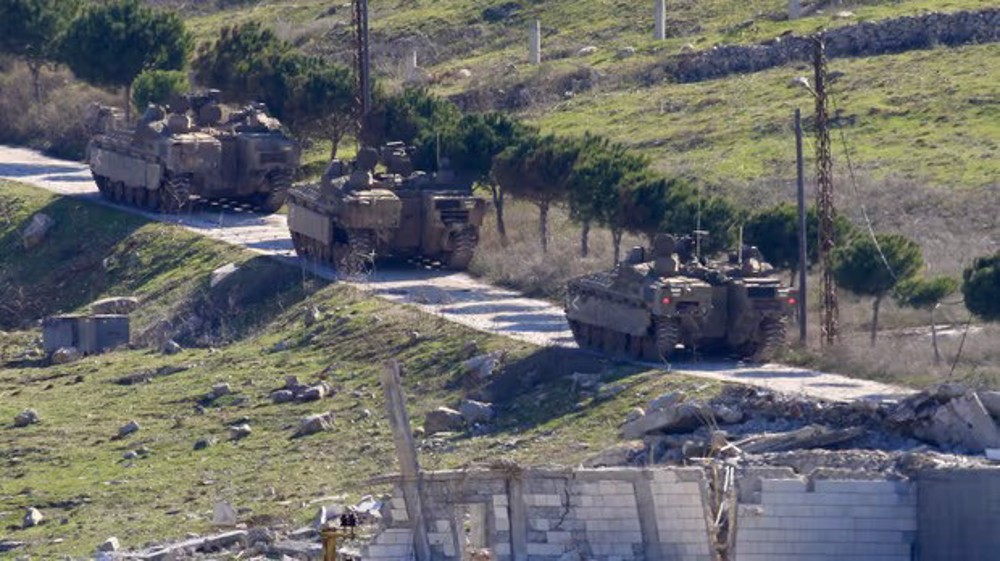
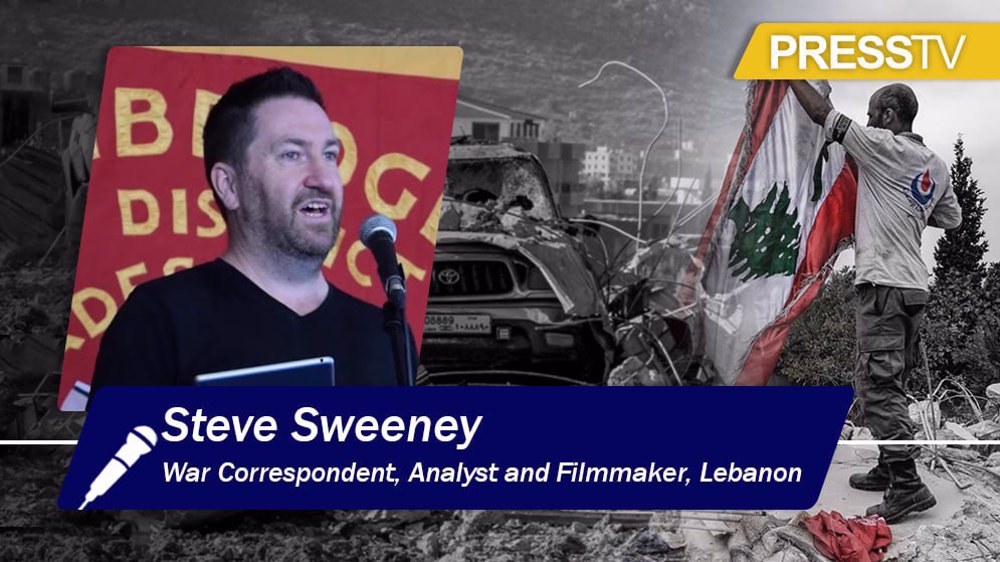
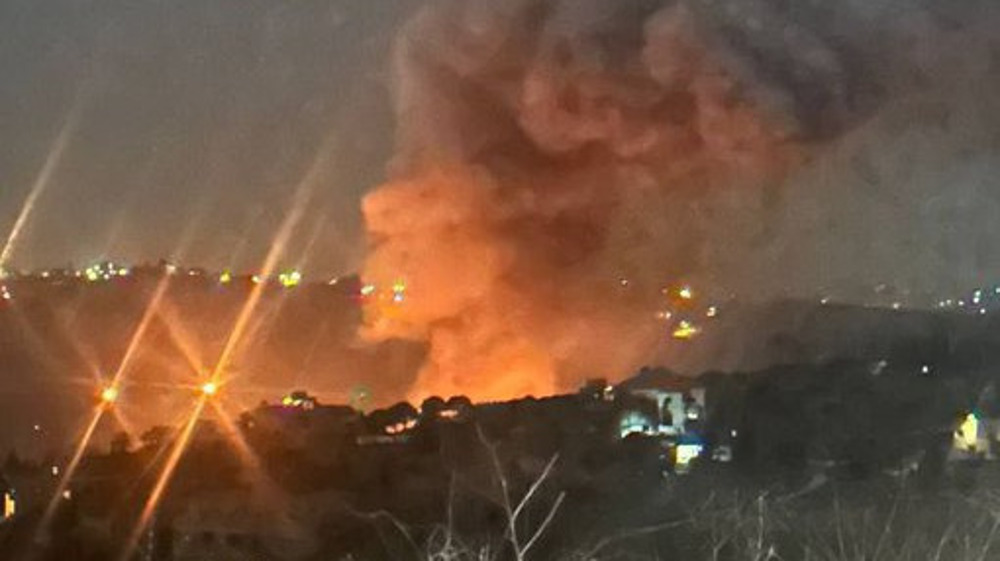

 This makes it easy to access the Press TV website
This makes it easy to access the Press TV website